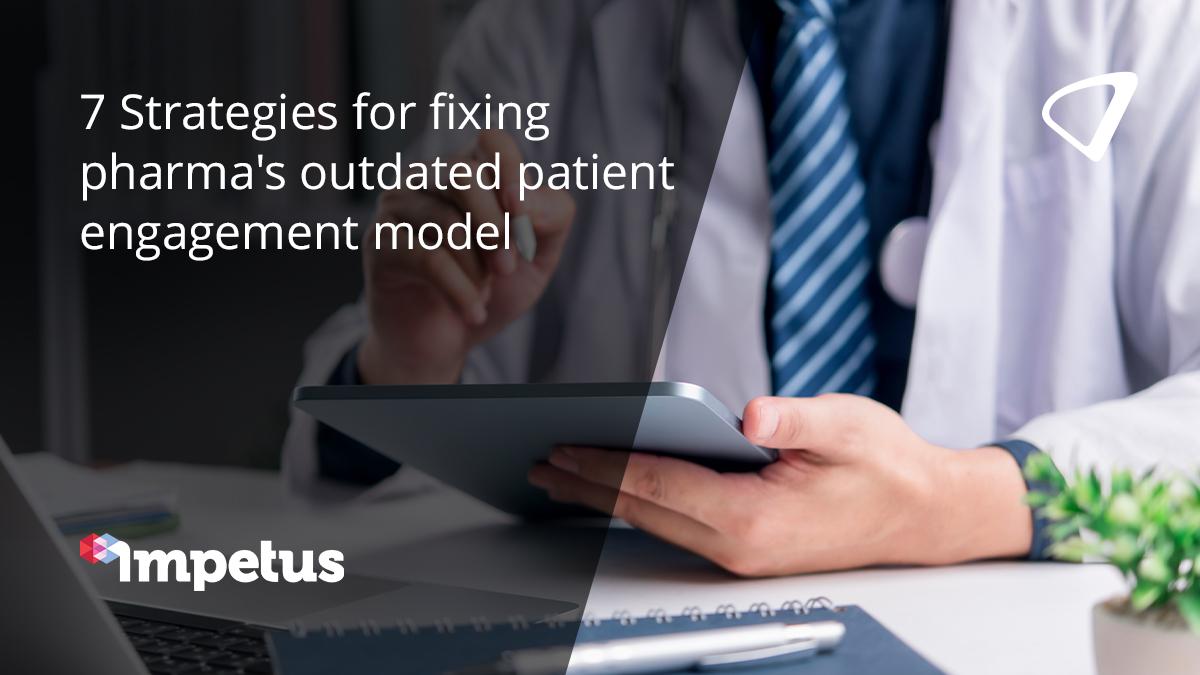How do HCPs view the potential of AI in the pharmaceutical industry?

“AI has arrived,” British Prime Minister Keir Starmer declared in a recent speech. “Our defining opportunity is here - and together, we will harness it”, he added, praising the potential of artificial intelligence to drive growth, foster innovation, and “transform public services”.
Of particular focus in the Prime Minister’s comments has been the role of AI in building a future-ready National Health Service (NHS). New announcements appear to back up his claims, including the publication of new NICE guidance approving the use of four AI technologies as a tool for improving fracture detection in X-rays in urgent care settings.
Across the Atlantic, the FDA has recognised AI’s growing presence in drug development across a range of therapeutic areas, acknowledging it particularly for its role in improving efficiency, enhancing diagnostics, and enabling more personalised patient care.
It’s clear, then, that AI is perceived as having potential to drive transformative change in the healthcare sector - in the UK, the US, and beyond.
At its heart, though, AI’s future in health will rely on those healthcare professionals (HCPs) working alongside it. HCPs will play an essential part in its successful implementation, including in providing feedback as to where AI innovations help - or perhaps hinder - healthcare provision. An understanding of the views of HCPs - those on the front lines of patient care - can make all the difference when it comes to the effective adoption of the latest technological innovations driven by AI.
At Creation Healthcare, we conducted an analysis of the online conversations of over 600 healthcare professionals discussing the potential of AI in the pharmaceutical industry. In total, our research assessed the contents of more than 1,000 individual posts.
Overall, we found an increasing sense of optimism among HCPs around AI’s potential in the industry. There was a broadly positive consensus in these conversations that AI had the capability to reshape research, treatment, clinical care, and patient impact.
At the same time, though, HCPs were found to be actively mentioning the continued challenges of ensuring AI advances are implemented ethically and effectively - with measurable value for patients and the healthcare system more widely.
Conversation topics
Among other themes, we found a number of posts among HCPs that focused on the role of AI in revolutionising healthcare provision. Of particular focus were collaborations between major pharmaceutical companies and AI firms that are paving the way for innovative solutions.
One post by Dr Eric Topol in November 2024, for example, spotlighted the partnership between Novo Nordisk, Nvidia, and the Danish Centre for AI on the world’s largest and most powerful supercomputer. The project hopes to improve patient outcomes through “accelerat[ing] research and innovation” in healthcare, particularly in drug discovery, disease diagnosis, protein design, and digital biology.
Diagnosis and treatment
The integration of AI in healthcare as a means by which to enhance diagnostic accuracy and treatment planning also appeared in HCP conversations. This was particularly in relation to AI-powered tools that streamline processes, enabling faster disease detection, and providing valuable insights for clinicians and researchers.
A post by Dr Gaurav Singal, an internal medicine physician based in Boston, MA, was typical of the optimistic sentiment that accompanied HCP posts regarding the benefits AI could offer in screening for rare diseases - in this case, in reference to early detection and management of suspected hypertrophic cardiomyopathy (HCM). Singal praised and congratulated the “visionaries” who worked on the project, adding that the collaboration between Bristol Myers Squibb and Viz.ai will have a “meaningful patient impact”.
HCPs also highlighted the ways in which pharmaceutical companies are leveraging AI to improve patient care in particular disease spaces. In a post on X, for example, Dr Akturk, an Associate Professor of Medicine and Pediatrics at the University of Colorado, spotlighted the machine learning use case made by Roche in their continuous glucose monitoring (CGM) offering for patients.
AI’s ability to help process large volumes of patient data also sparked conversation. A post from Bertalan Meskó PhD, who describes himself as ‘The Medical Futurist’, shared news of the development of AstraZeneca’s MILTON, an AI tool that analyses test results collected by GPs to predict later disease diagnoses in patients. The post, which reached a significant number of fellow online HCPs, shared hope that the AI technology would help front line clinicians, including primary care doctors, cope with ever increasing workloads.
AI collaboration in medical research and treatment
Collaborations between AI companies and pharmaceutical giants aimed at accelerating the identification of new drug candidates, and revolutionising treatment approaches, was also a major topic during the study period. HCPs interacted with these stories often online. For example, Dr Ivancevich’s post highlighted one of many collaboration announcements on AI in the field of drug development and exploration, such as Sanofi with Formation Bio and OpenAI, which aims to build AI-powered software to accelerate drug development and bring new medicines to patients more efficiently.
News of collaborations between OpenAI and other leading innovators and top pharmaceutical companies appeared frequently, with several announcements over the research period. Examples included Lilly’s announcement of collaboration with OpenAI in June 2024, joining Sanofi and Moderna.
There was, however, less interest from HCPs in response to these announcements than might have been expected - perhaps a result of the sheer volume of announcements in the period. Despite this, some HCPs highlighted the need for appropriate ethical guidelines and oversight of some of these innovative, yet unproven, collaborations. Tom Welton, for example, president of the Society of Radiographers, shared a post acknowledging that “AI is here to stay” and, as a result, HCPs must “ensure that it [is] monitored adequately, and [its] risks mitigated”.
AI in biopharma collaborations
The intersection of AI and biopharma, and its resulting collaborations aimed at expediting drug discovery processes, were also a focus of HCP online conversations. Steven Blumer MD, Americas director, radiology digital medical affairs at Bayer, highlighted the opportunities in the paediatric treatment area, emphasising that there is a role for safe, equitable, and reliable AI in children’s care. Blumer specifically referenced his employer’s interest in collaborating with the FDA to further AI opportunities in the space.
When Demis Hassabis, chief executive officer of DeepMind Technologies, posted an announcement about the collaboration between Eli Lilly, Novartis, and Google DeepMind’s spin-off Isomorphic Labs, some HCPs responded enthusiastically. Dr Mindaugas Galvosas, for example, praised the collaboration, anticipating “significant breakthroughs” being achieved more efficiently.
In many ways, the praise directed towards AI’s potential in healthcare by HCPs mirrors the ambitious language of politicians, like Keir Starmer, looking to harness its capabilities to drive growth and innovation nationwide. Just as AI’s broader impact will depend on the frameworks established by policymakers, though, the success of AI’s implementation in health will no doubt rely on the input of healthcare professionals - those who will, more often than not, be working with and alongside it. Their optimism uncovered in this research, paired with calls for ethical oversight and patient-focused innovation, underscores the importance of aligning technological advancements with real-world needs. Acknowledging HCP perspectives is - and will be - key in enabling AI to deliver meaningful and lasting improvements in patient care.













